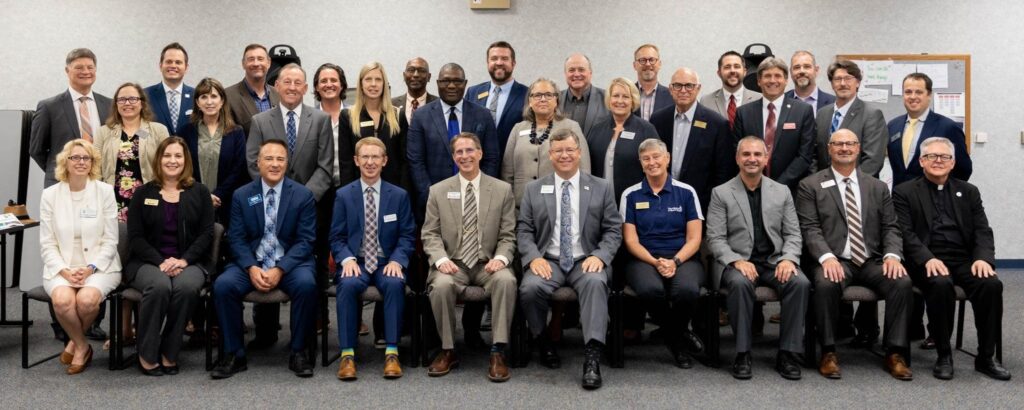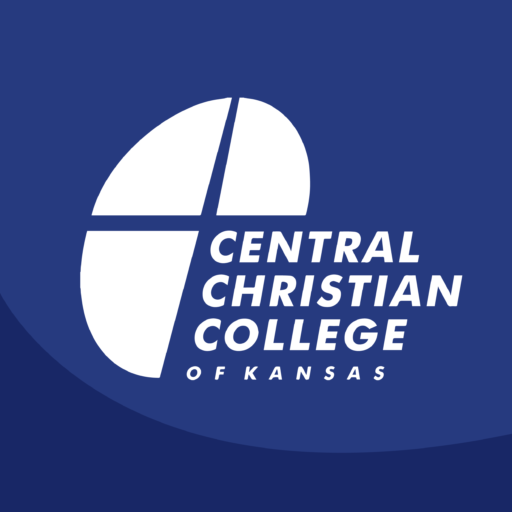McPherson, Kansas - Central Christian College of Kansas (CCCK) announced today it is adding two…
Central Signs Universal Transfer Agreement
 Student transfer opportunities expanded today after the Kansas Community Colleges and Kansas Independent Colleges announced initiation of a Global Transfer and Course Articulation Agreement that paves the way for students to seamlessly transfer from any Kansas Community College to any Kansas non-profit college or university, including Central Christian College of Kansas. After the implementation of the agreement, any student awarded an Associate of Arts (A.A.) or Associate of Science (A.S.) from a Kansas Community College shall be deemed as having fulfilled the general education requirements of their choice of any Kansas Independent Institution. This consistent coordination and ease of transfer will help ensure students graduate on time, with less cost, and with the goal of keeping these students in Kansas.
Student transfer opportunities expanded today after the Kansas Community Colleges and Kansas Independent Colleges announced initiation of a Global Transfer and Course Articulation Agreement that paves the way for students to seamlessly transfer from any Kansas Community College to any Kansas non-profit college or university, including Central Christian College of Kansas. After the implementation of the agreement, any student awarded an Associate of Arts (A.A.) or Associate of Science (A.S.) from a Kansas Community College shall be deemed as having fulfilled the general education requirements of their choice of any Kansas Independent Institution. This consistent coordination and ease of transfer will help ensure students graduate on time, with less cost, and with the goal of keeping these students in Kansas.
President Favara attending on behalf of the college shared this following the signing, “This is a great day for Kansas students. With the assurance of general education transfer credits, we will see students graduate on time at less cost ready to engage civically throughout the state, nation, and around the world.”
“Across the country, debate rages on about college access and affordability,” said Kansas Independent College Association President Matthew Lindsey. “We believe that KICA and KACCT have developed a forward-thinking and sustainable resource to demonstrate to Kansas families and taxpayers we are leading the way.”
This new transfer agreement was formally adopted during a signing ceremony on Tuesday, September 20th at Friends University in Wichita, following a joint discussion by presidents from both the Kansas Community Colleges and Kansas Independent Colleges on current and future opportunities to serve students better.
Kansas Association of Community College’s Executive Director Heather Morgan praised the partnership, noting “The benefits of the new transfer agreement, the student opportunities it provides, and the potential for additional partnerships to benefit Kansas students reflects the synergy that we need in higher education. We’re working to meet the needs of Kansas learners and this transfer agreement is a key link to ongoing student success and advancement.”
Dr. Michael Schneider is President of McPherson College and Chair of the KICA Board of Directors, celebrates the event by saying, “The spirit of innovation and the road to success intersect at the passion of a Kansas student. The agreement we signed today is the preamble to the new stories of enterprise that our students will write.”
Kansas leaders understand and hold strong to the quantitative proof that higher education leads to an improved quality of life for students, their families, and their communities. A positive experience while in college in Kansas leads to more students living and working in Kansas, a benefit to the entire state.
Today, more than half of Kansas college students attend one of the state’s 19 community colleges or 1 of the 20 Independent Institutions.
###
The Kansas Community College Trustees Association serves as the voice of the Kansas Community Colleges. The Kansas Independent College Association develops and enhances the competitive standing of its 20 member colleges by coordinating efforts including professional development and collaboration, governmental advocacy, and public engagement collectively aimed at supporting students and their success.
ABOUT CENTRAL CHRISTIAN COLLEGE OF KANSAS
Central Christian College of Kansas is a regionally accredited institution offering undergraduate and graduate-level programs. Central strives to offer Christ-centered education for the whole person – heart, mind, soul, and strength. Its history dates back to 1884, and it is located in the friendly town of McPherson, Kansas. Central is a strategically small college that offers over forty areas of study online and on ground and a thriving online program for non-traditional students.






